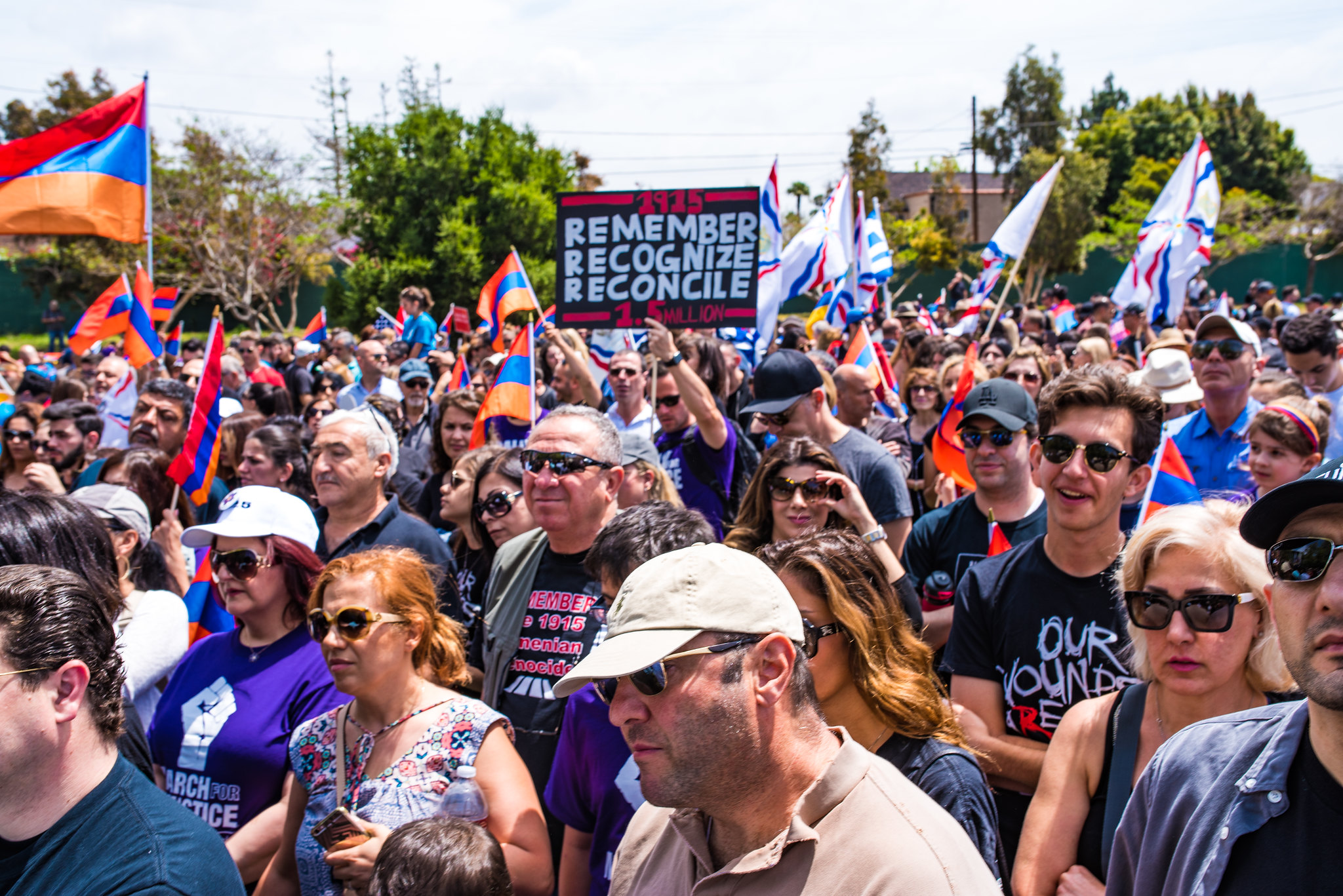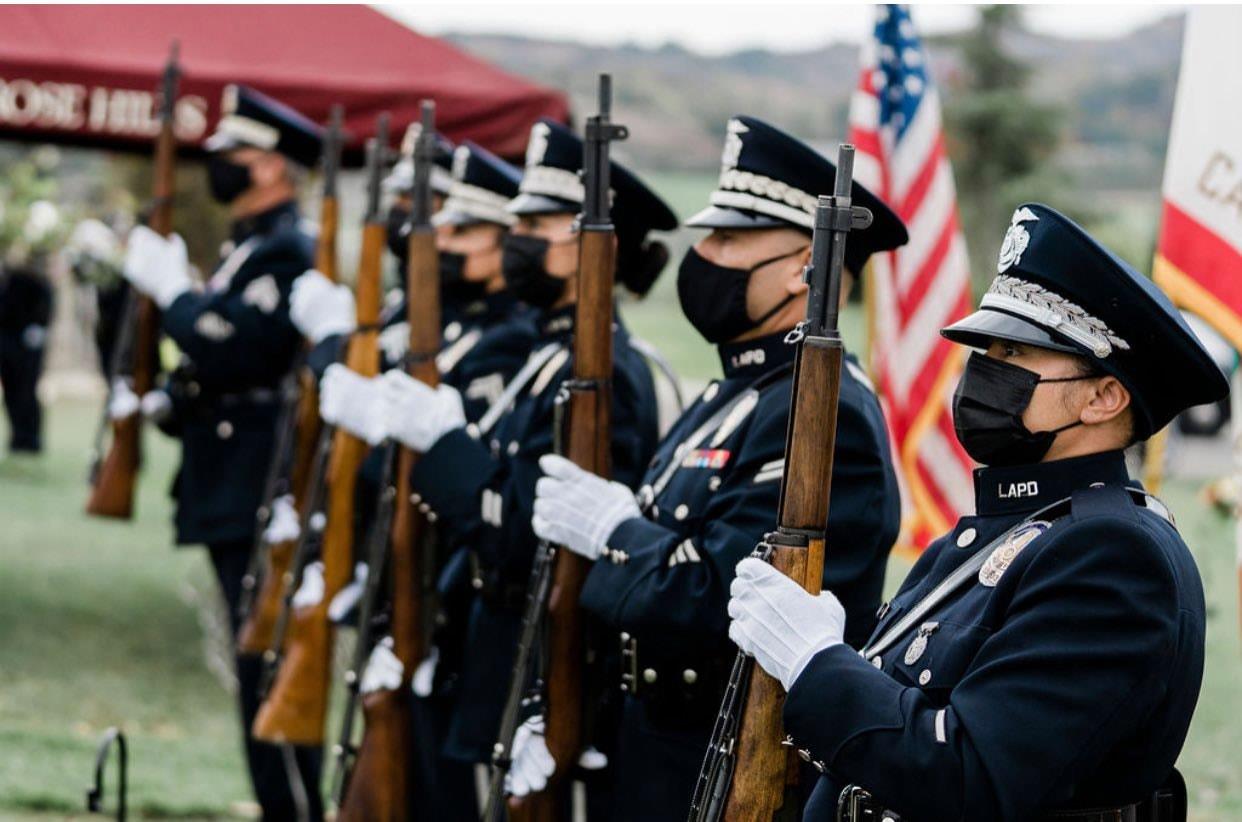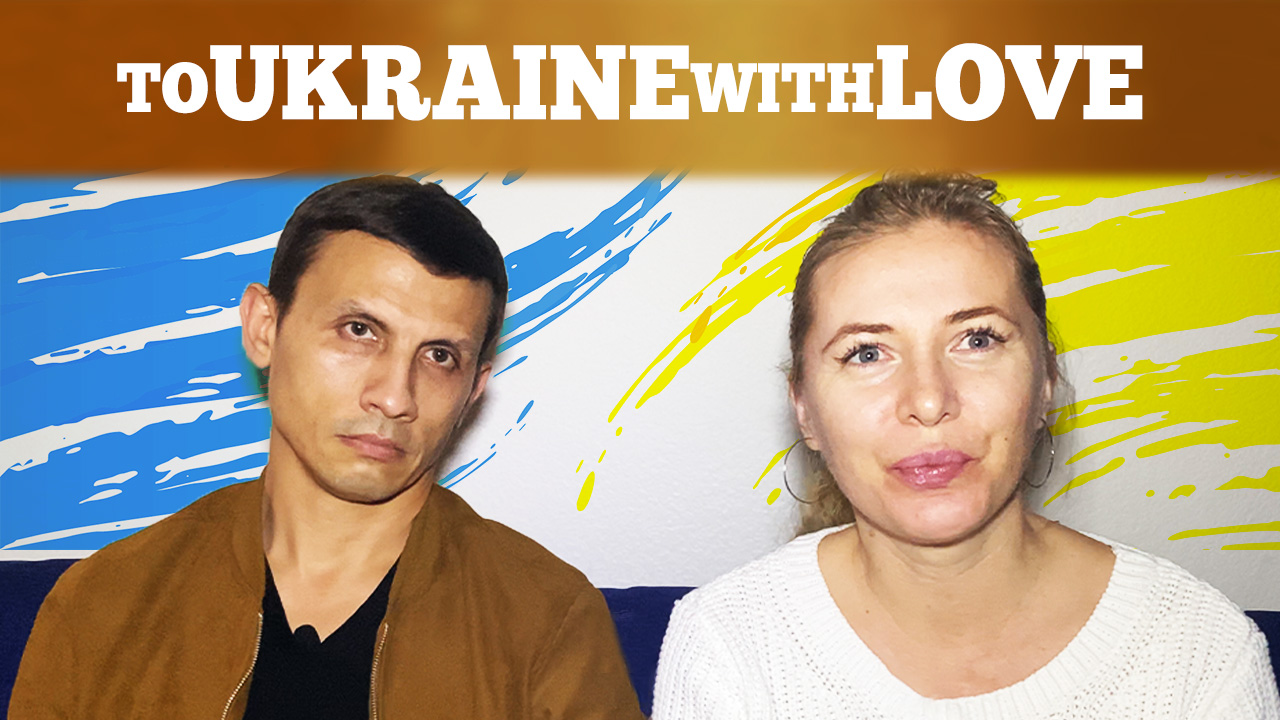Armenian-Americans gathered at several events throughout Los Angeles County Sunday to mark the 107th anniversary of the beginning of the Armenian Genocide — the mass killing of Armenians by Turkish forces during World War I.
Los Angeles County is home to the largest population of Armenians in the United States, with an estimated 214,628 living in the county, according to the 2011 American Community Survey.
To honor the county’s Armenian residents and their culture, the Board of Supervisors last month proclaimed April as “Armenian History Month” — and, last week, also passed a motion declaring April 24 as “Armenian Genocide Remembrance Day in Los Angeles County.”
Gov. Gavin Newsom has also issued a proclamation declaring April 24, 2022 “A Day of Remembrance of the Armenian Genocide” in the state of California.
“As we remember the victims and survivors of the Armenian Genocide, we also honor the strength and resilience of the Armenian people,” the proclamation said, in part. “Forced to build new lives in all corners of the globe, Armenians bravely forged ahead in the face of unimaginable tragedy. Thousands made their homes in California, and we are greater for their contributions.”
April 24 is also observed throughout the Armenian diaspora, and is a holiday in Armenia and the Republic of Artsakh.
In Los Angeles, at 3 p.m. Sunday, the Armenian Youth Federation held a protest attended by hundreds of demonstrators outside the Turkish Consulate at 8500 Wilshire Blvd. to demand the Turkish government acknowledge the genocide and stop its support of Azerbaijan in the Artsakh, a region fought over by Azerbaijan and Armenia.
“Our community is also calling on the U.S. government to prevent Turkey and Azerbaijan from committing ongoing war crimes against the Armenian people,” Alex Galitsky, spokesman for the Armenian National Committee of America, an organizer of the event told the Los Angeles Times..
The Armenian Genocide began in 1915 and resulted in the deaths of as many as 1.5 million Armenians in a campaign blamed on Turkey’s Ottoman government. While the genocide has been chronicled by historians, who often view it as ethnic cleansing, Turkey has denied it occurred, saying the deaths of Armenians was a function of the chaos of World War I, which also claimed Turkish lives.
Until President Joe Biden in 2021 officially called the killings a genocide, American presidents had also declined to do so, instead classifying the deaths at the hands of the Ottoman Empire an atrocity, but not a genocide.
Last week’s Remembrance Day motion by the L.A. County Supervisors — co-introduced by Supervisors Hilda Solis and Kathryn Barger — said, in part, “Despite overwhelming evidence, the Turkish government still denies the occurrence of an Armenian Genocide. Many international and American leaders and elected officials from local, state, and federal governments have condemned the atrocities committed against the Armenians and are calling on Turkey to acknowledge the genocide and its participation in it.”
The motion went on to say, “On April 24, 2021, President Joe Biden officially recognized the Armenia Genocide. That was a huge victory for the diaspora and the result of decades of tireless efforts to have the highest level of our government call this genocide by its name.”
Solis, whose district includes Little Armenia, said, “Armenian Genocide Remembrance Day is an especially poignant commemoration for residents across Los Angeles County. … Through this motion, we mark our commitment to remember the lives lost in the Armenian Genocide, honor the legacy of survivors and elevate the voices of this dynamic and diverse community.”
Said Barger: “The month of April and the celebration of Armenian culture culminates in our Day of Remembrance, a day to mourn and remember the loss of over 1.5 million innocent lives. I am heartened that my Armenian constituents are a resilient people — determined, focused and dedicated to persevering.”
Last year, following Biden’s declaration, Rep. Adam Schiff — whose district includes Glendale — said, “For Armenian-Americans and everyone who believes in human rights and the truth, today marks an historic milestone: President Biden has defied Turkish threats and recognized the slaughter of 1.5 million Armenians for what it was — the first genocide of the 20th century. In so doing, he has cast aside decades of shameful silence and half-truths, and the broken promises of so many of his predecessors, and spoken truth to power.”
Meanwhile, the city of Glendale held its Annual Armenian Genocide Commemorative Event in-person for the first time in two years, at the Alex Theatre. The city said the program would allow people to experience a contemporary perspective of the genocide through music and dance, featuring the work of the Armenian priest Komitas through dance and musical performances curated by the Lark Musical Society.
And St. Mary’s Armenian Apostolic Church, at 500 S. Central Ave. in Glendale held a concert dedicated to the martyrs of the Armenian Genocide and the 44-day war in the Artsakh.
A response to the protests was issued Sunday from Azerbaijan’s Consulate General in Los Angeles.
“In the early 1990s, Armenia invaded and ethnically cleansed 20% of Azerbaijan’s sovereign territory with impunity. Over 1 million Azerbaijanis were forcibly displaced from their lands (800,000 from occupied districts of Azerbaijan and 250,000 from Armenia),” Consul General Nasimi Aghayev said in a written statement.
“In 2020, Azerbaijan liberated its territories from Armenia’s illegal and United Nations — condemned occupation. During the war, Armenia bombed our major cities, using even the widely banned cluster munitions (as Human Rights Watch and Amnesty International also confirmed), as a result of which 101 Azerbaijani civilians, including 12 infants and children, were killed, 423 civilians were wounded and 80,000 displaced.
“Throughout 30 years of violent and barbaric occupation, Armenia decimated approximately 4,000 square miles of Azerbaijan’s territory. Entire Azerbaijani cities, towns and hundreds of villages — once home to 800,000 Azerbaijanis — were looted and razed to the ground.
“Moved by deep-rooted and state-sponsored anti-Azerbaijani hatred and in an effort to remove any traces of Azerbaijani ethnicity and historical presence in the occupied territories, Armenia committed an unprecedented cultural cleansing targeting all Azerbaijani cultural and religious heritage. At least 65 mosques throughout both Qarabagh and East Zangezur regions of Azerbaijan were looted, desecrated and broken up. Many of them were turned into pigsties and cowsheds.”
Aghayev concluded by saying, “Since the liberation of its territories in 2020, Azerbaijan has launched there an unprecedented, multi-billion dollar reconstruction effort, building smart villages, airports, highways, railroads, power stations and other crucial infrastructure, as well as removing landmines, in order to ensure a safe and dignified return of hundreds of thousands of forcibly displaced Azerbaijanis to their lands.
“Azerbaijan has offered Armenia to open all communications, achieve the delimitation and demarcation of the state border and sign a final peace treaty. The latest Azerbaijan-Armenia negotiations — held in Brussels — have been very successful, paving the way for concrete steps towards peace. We firmly believe that we can turn the South Caucasus into a region of peace, prosperity and harmonious coexistence.”







